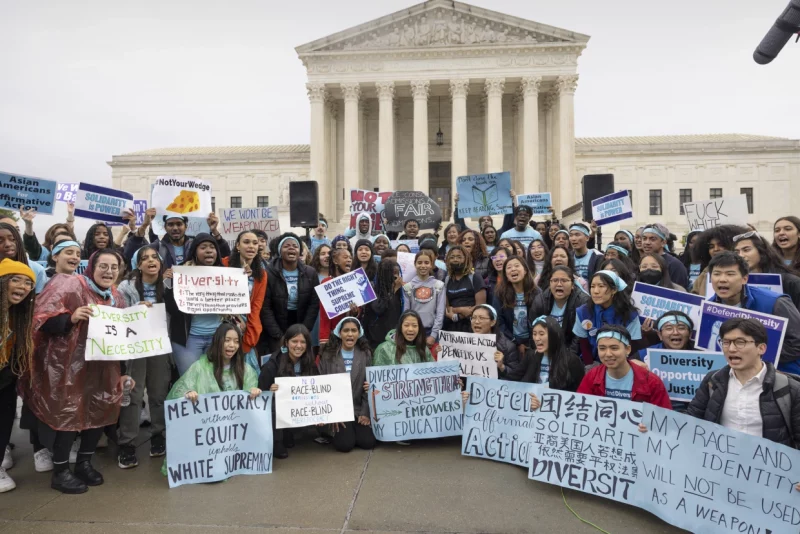The role of HBCUs in a post-affirmative action America
Share
Explore Our Galleries
Breaking News!
Today's news and culture by Black and other reporters in the Black and mainstream media.
Ways to Support ABHM?
By Char Adams, NBC News
Leaders at historically Black colleges and universities say overturning race-conscious admissions would have a dire impact on higher education.

Historically Black colleges and universities are just as prestigious as Ivy League schools, and they’re diverse. That is why, leaders say, HBCUs and other minority-serving institutions will be even more important to students of color should the Supreme Court end affirmative action in college admissions.
As conservative Supreme Court justices seem poised to end the explicit consideration of race in college admissions, HBCU leaders say doing away with race-conscious admissions would have a dire impact on racial equity in the country. They believe it would create “racially isolated” colleges and universities, making HBCUs and other minority-serving institutions, or MSIs, among the only institutions where Black and Latino students would feel supported and safe.
“Our missions are concerned with racial justice and racial equity. So the overturn of race-conscious admissions would be a serious blow to the mission of HBCUs and all minority-serving institutions,” said Danielle R. Holley, a law professor and the dean of Howard University School of Law.
“I hope that no one will assume that HBCUs and MSIs will be able to absorb the number of students who may feel they are no longer welcome at racially isolated, predominantly white universities.”
She said overturning race-conscious admissions would even “decrease the amount of racially diverse professors for universities across the country,” adding that “many professors are educated at Harvard” and that the loss of race-conscious admissions would likely “decrease the amount of racial diversity in academia in a very significant way.”
Discover how affirmative action impacts HBCUs.
HBCUs need the staff as enrollment increases despite threats of violence and attempts to eliminate federal funding.









Comments Are Welcome
Note: We moderate submissions in order to create a space for meaningful dialogue, a space where museum visitors – adults and youth –– can exchange informed, thoughtful, and relevant comments that add value to our exhibits.
Racial slurs, personal attacks, obscenity, profanity, and SHOUTING do not meet the above standard. Such comments are posted in the exhibit Hateful Speech. Commercial promotions, impersonations, and incoherent comments likewise fail to meet our goals, so will not be posted. Submissions longer than 120 words will be shortened.
See our full Comments Policy here.